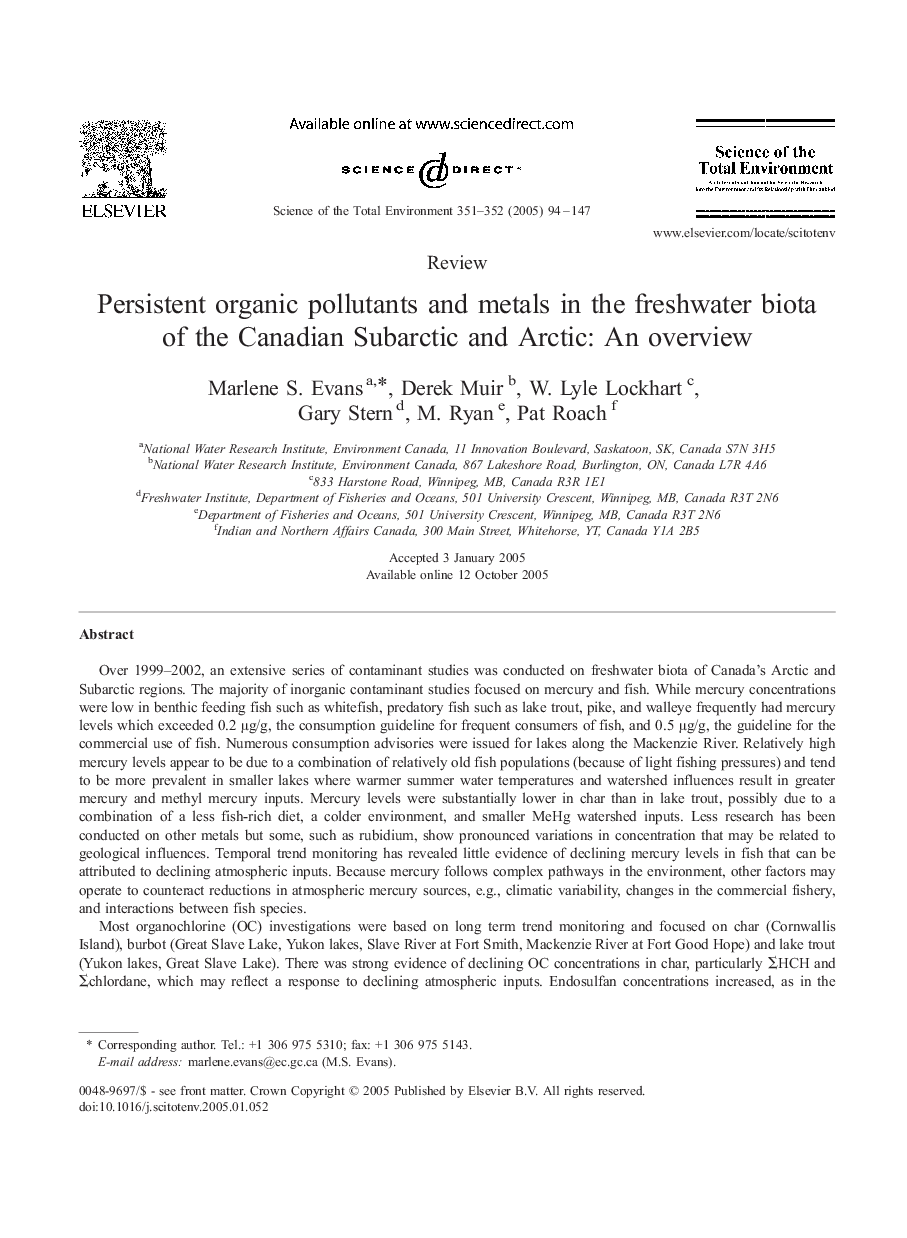| Article ID | Journal | Published Year | Pages | File Type |
|---|---|---|---|---|
| 10110565 | Science of The Total Environment | 2005 | 54 Pages |
Abstract
Global warming is a major issue of concern for Arctic and Subarctic waters and may have adverse impacts on contaminant levels in fish and other biota. There is a need for contaminant studies in the north to be broadened to investigate climatic effects. In addition, monitoring studies should be broadened to consider factors affecting other aspects of fish biology. Foremost among these is integrating contaminant monitoring studies on lakes such as Lake Laberge and Great Slave Lake with stock assessment studies. Ecosystem based studies should be conducted on Great Slave Lake and Lake Laberge to more effectively understand contaminant trends and should consider inputs (atmospheric, river inflow, resupension), losses (sedimentation, volatilization), and biological pathways.
Keywords
Related Topics
Life Sciences
Environmental Science
Environmental Chemistry
Authors
Marlene S. Evans, Derek Muir, W. Lyle Lockhart, Gary Stern, M. Ryan, Pat Roach,
